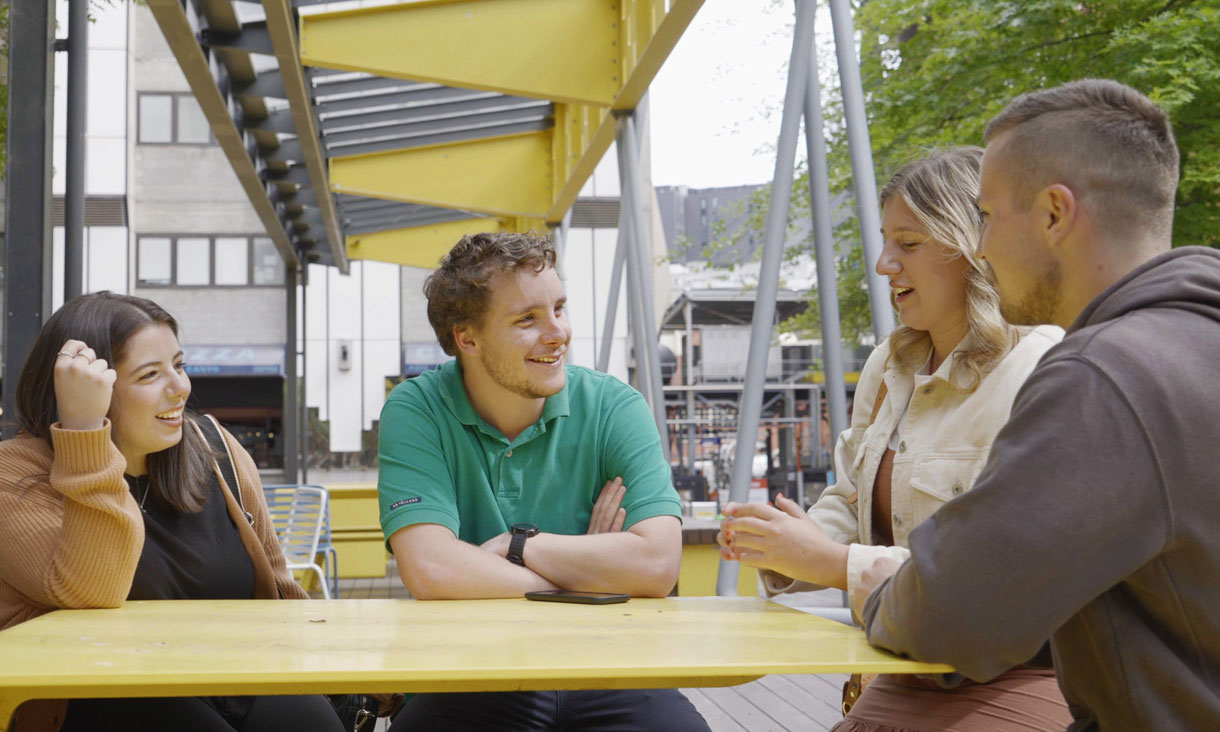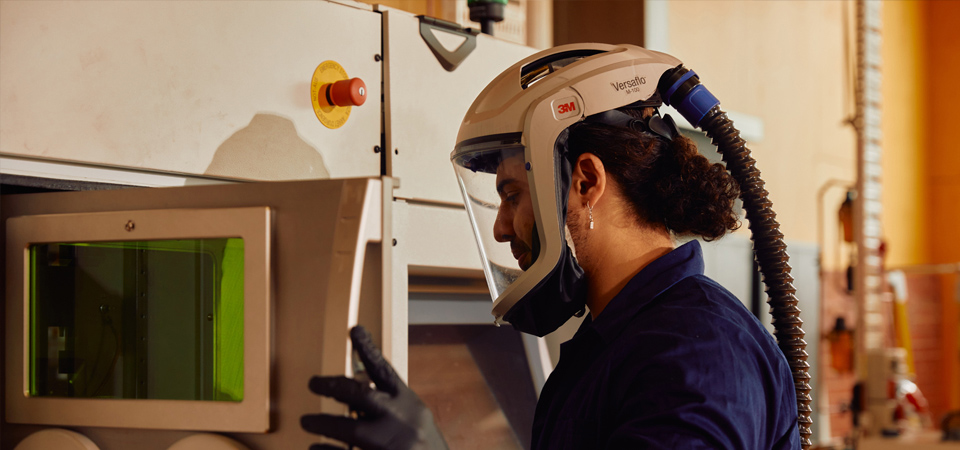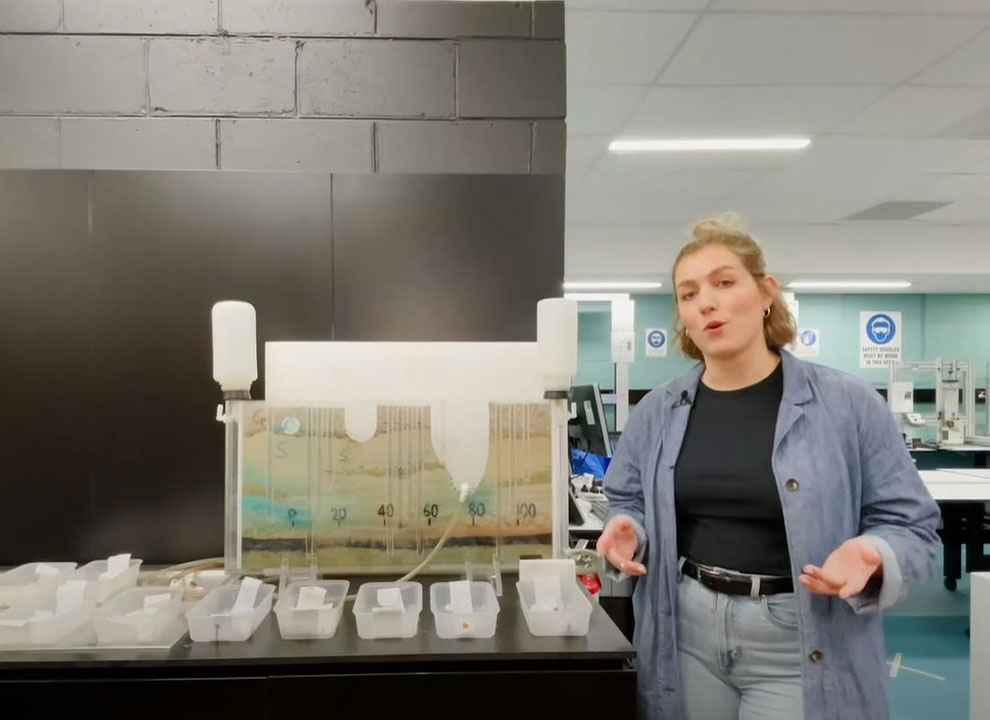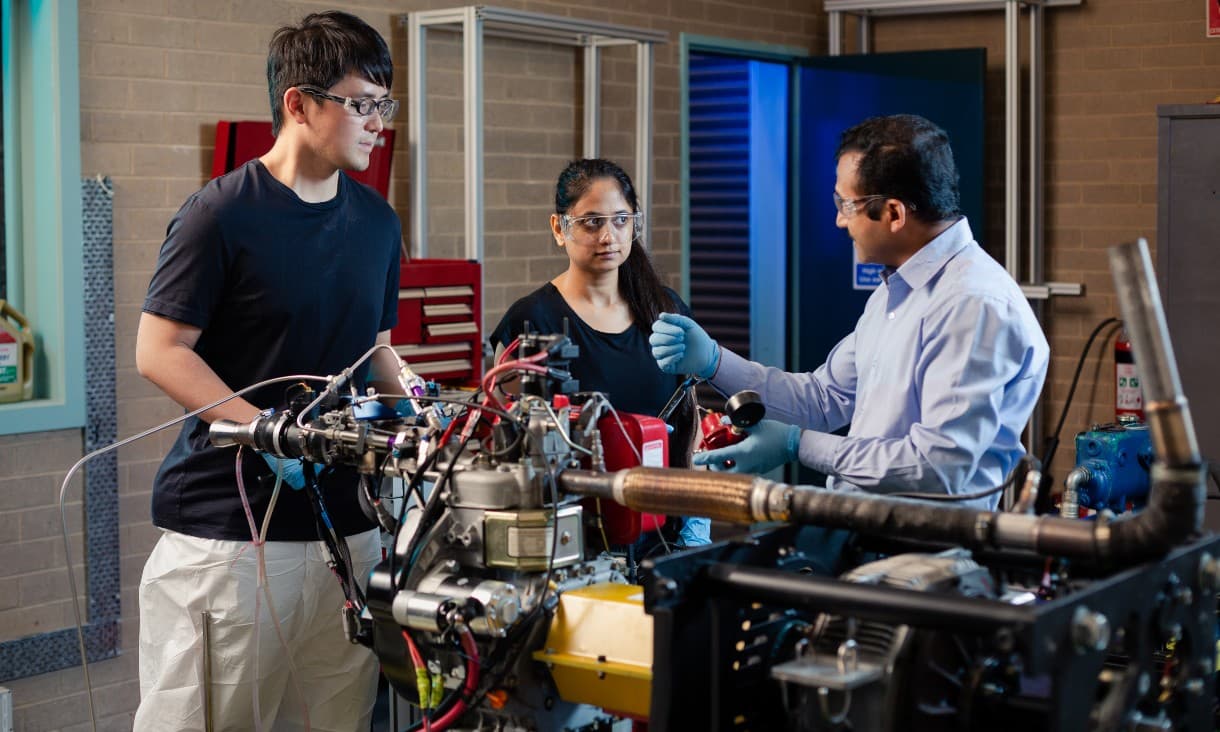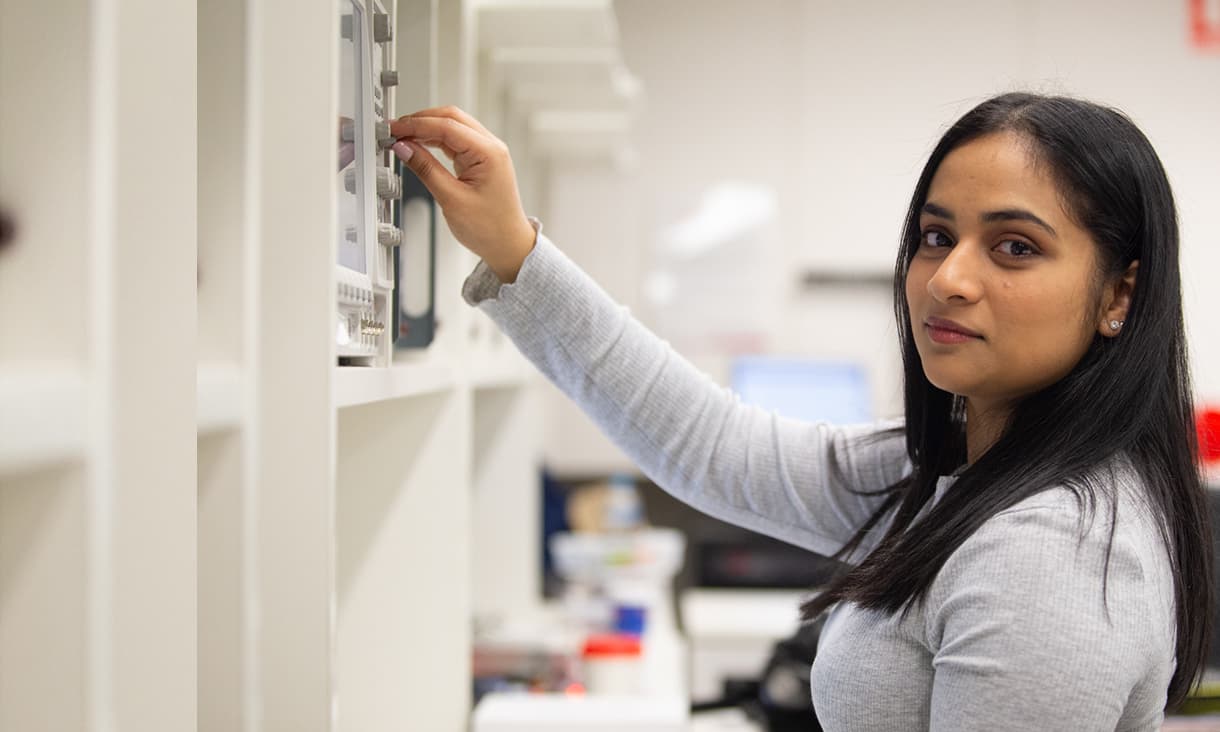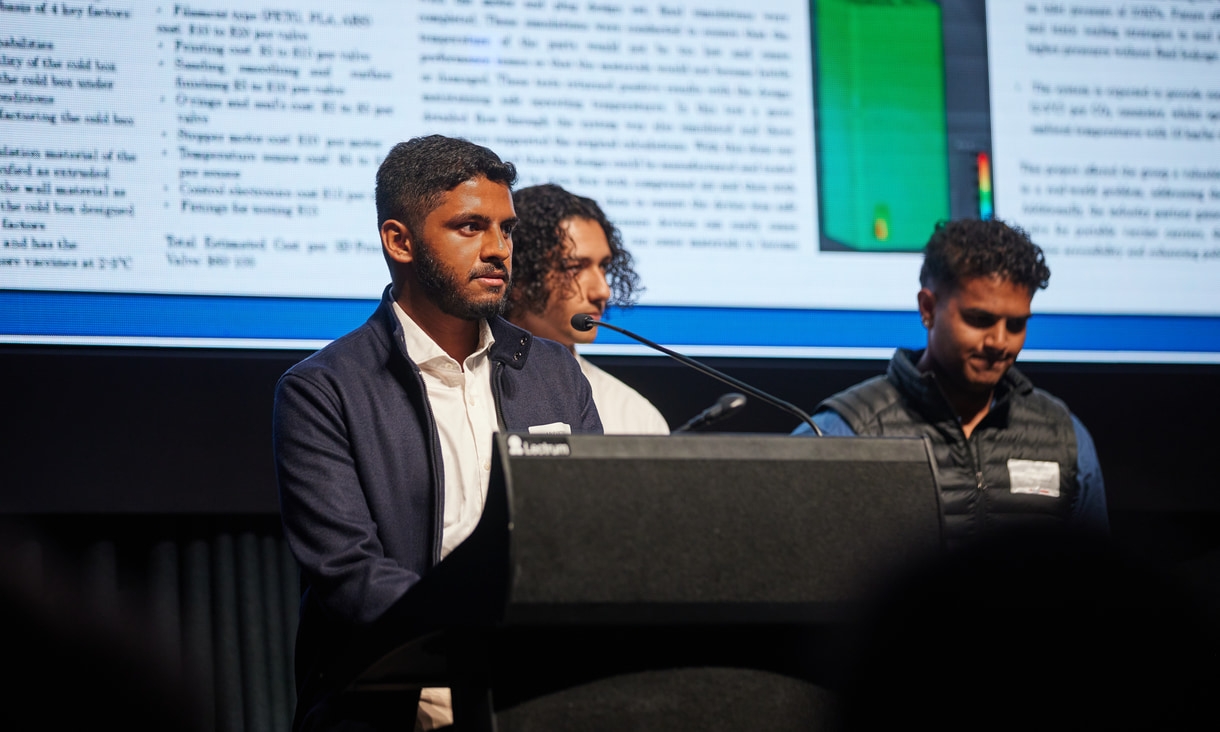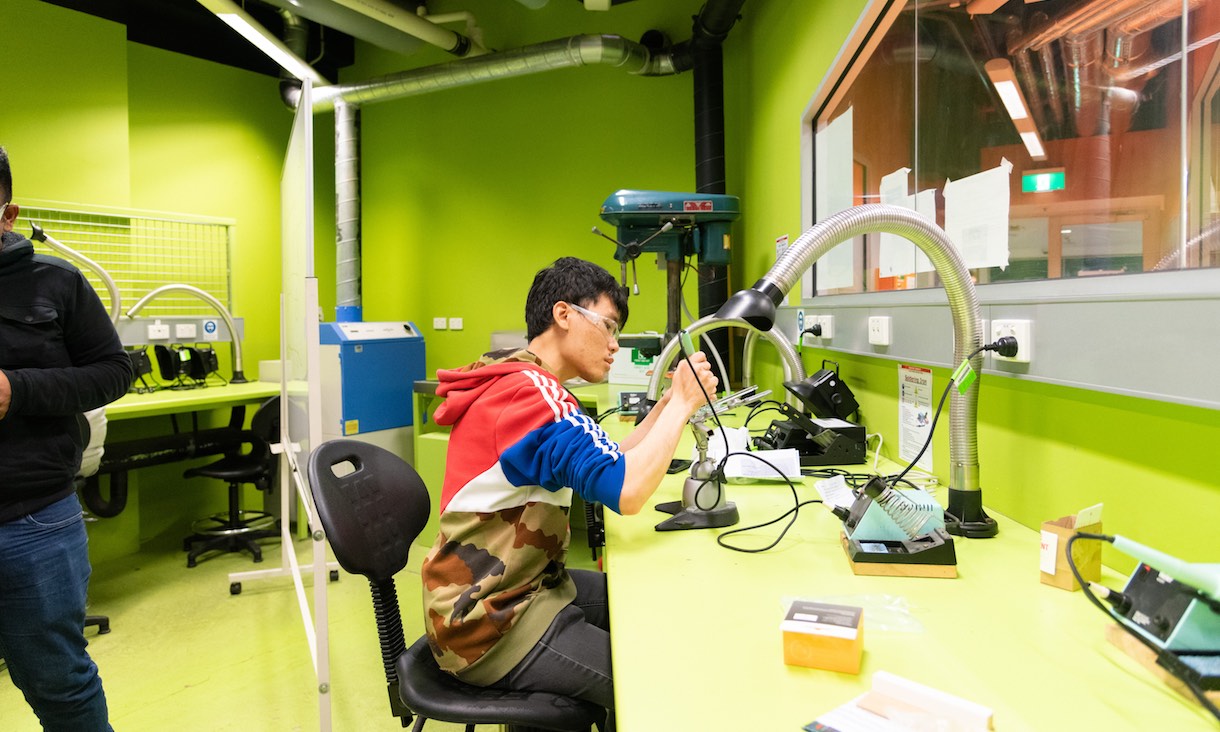[Start transcript]
[Music]
[Evangeline]
Hi everyone and welcome to the RMIT engineering facility tour. I’m Evangeline and today I’m going to give you a quick tour of some of RMIT’s amazing engineering facilities. With 11 different study areas on offer, you are bound to find a field of engineering that suits you. But if you’re not sure if you want to study for robots or race cars, RMIT offers a flexible first-year where you can explore different fields and find out what you like. Now, let’s start our tour with one of my favourites, the advanced manufacturing precinct.
[Music continues]
So, advanced manufacturing involves the design of new and innovative products. And it’s transforming industries like the energy sector and biomedical manufacturing. It also involves a lot of specialised 3-D printing. In fact, the first Australian custom made spinal implant was made right here. And students have access to polymer 3-D printers, just like these.
The AMP brings together engineering and design. And the precinct houses some of the most cutting-edge technologies available. Researchers here have worked with companies like Boeing, Ford, Siemens and many more.
[Music continues]
So, the electrical engineering labs include the automation, power electronics and machines labs. So, here we are in our automations lab where we have our Programmable Logic Controllers or PLCs, which are powerful computers used in industrial automation. These controllers can automate a specific process, machine function or even an entire production line, like we see here.
So, this is our machines lab, which is equipped with an electrical plant for power systems, microgrids and renewable energy studies. So, we know that the sun converts nuclear energy into heat and light energy. This is known as energy conversion. In the power electronics lab, we convert electrical energy into different forms using rectifiers and inverters. Like the one we have here.
[Music continues]
Now, let’s go find out what a photon is. Photonics powers our Internet. And last year, right in this lab, we broke the world record for fastest Internet on a single optical chip with a speed of around 44 terabits per second. To put that into perspective, at that speed you could download 1000 high definition movies in about a second.
So, the surface mount devices lab laboratory is a new facility in the School of Engineering. Here, students can produce functional electronic prototypes to really bring their designs to life. Plus, it’s got some pretty cool equipment, including a thermal imaging camera, 3-D microscope, as well as plenty of testing equipment and assembly workspaces.
[Music continues]
So, we’re now in the civil and environmental engineering lab. This lab has some specimens from major rock and mineral types. Students can learn about these samples, how they were formed, and about their engineering properties. This is a model which demonstrates the movement of water below the earth through different materials. The lab is also a hub for hydrogeology research projects, as well as visits to industry partner sites.
This is the chemical engineering lab where students can turn raw materials into products like pharmaceuticals, plastic, petrol and even food. They also find ways to make the processing industries more environmentally sustainable.
This is the second largest wind tunnel in the southern hemisphere used for research and education. It can mimic wind speeds of up to 150 kilometres per hour. It’s used to assess wind drag on a range of small-scale aircraft, cars, trucks and trains. And it can even be used to affect the position of an athlete on their aerodynamic drag.
This is our heavy structures lab, where our civil engineers spend a lot of their time. This lab experiments with technologies like robotics and 3-D printing for use in construction. As well as developing smart materials for use in extreme or harsh conditions, such as a fire, an explosion or under severe pressure. They also aim to increase the use of sustainable and recyclable materials in construction.
[Music continues]
Here we are in our thermal fluids lab, another one of our mechanical workshops. This is used for research and testing by students, professors and industry partners.
I hope you enjoyed this tour of RMIT’s impressive engineering facilities. And remember, if you have any more questions, you can reach out to the friendly team at Study at RMIT. And we hope to see you soon.
[End transcript]

